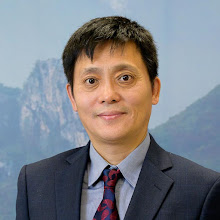Stress, depression and anxiety are three
different mental health disorders.
Stress is the most common condition,
nearly everyone experiences stress at one time or another. According to the
findings from the Office for National Statistics (ONS), nearly one-fifth of
adults in the UK experience anxiety or depression.
The clinical manifestations of these
three emotional disorders are different;
Stress is the feeling of being under too
much mental or emotional pressure. It can cause a lot of physical symptoms
including: low energy, headaches, stomach upset,
diarrhoea, constipation and nausea, aches, pains, and tense
muscles, chest pain and rapid heartbeat, insomnia and low libido.
Depression is a mood disorder that causes
a persistent feeling of helplessness, hopelessness and sadness and loss of
interest in daily activities, anger or irritability, appetite or weight
changes, sleep changes, loss of energy, self-loathing and reckless behaviour.
Anxiety is a feeling of unease, such as
worry or fear. The clinical symptoms vary depending on the type of anxiety
disorder, but generally include: Feelings of panic, fear, and uneasiness,
sleeping disorder, cold or sweaty hands and/or feet, shortness of breath,
palpitations, restlessness, dry mouth, numbness or tingling in the hands or
feet.
Living in modern society everybody has to
face a stressful life of working or studying. Long term stress often causes
depression and anxiety. Many other reasons
also can lead to depression and anxiety, including marital or relationship
problems, unemployment, alcohol or drug abuse, early childhood trauma or abuse,
health problems or chronic pain and family history.
TCM Perspective
Traditional Chinese medicine believes
these diseases are caused by seven emotions disorder. In ancient classic
text these conditions have been diagnosed as Yu Zheng. In TCM most of
depression and irritable moods are due to liver qi stagnation; most of sleeping
problems and palpitation are due to heart shen disturbance or heart qi deficiency;
some symptoms of the digestive system are due to spleen and stomach disharmony.
Acupuncture can regulate the
function of these internal organs by
stimulating certain points on certain
meridians. A systematic review and meta-analysis
study suggests that acupuncture combined with antidepressant
medication is effective, has an early onset of action, safe and well-tolerated
over the first 6-week treatment period [1]. In depression treatment,
a cost-effectiveness analysis study from UK suggests that acupuncture is cost-effective compared with counselling or usual
care alone [2].
Chinese herbs also can have
good effect in relieving depression and anxiety symptoms. Some antidepressant-like effects were obtained from ethanolic extract of Chinese herb
Suanzaoren and Hehuan[3]. These antidepressant-like
extracts come from natural herbs; they don’t have any side effects unlike
synthetic antidepressants.
Generally speaking TCM can be very helpful in the
treatment of stress, depression and anxiety and is
therefore a better alternative option.
Reference:
- Chan YY. The benefit of combined acupuncture and antidepressant medication for depression: A systematic review and meta-analysis. J Affect Disord. 2015 May 1;176:106-17.
- Spackman E. Cost-effectiveness analysis of acupuncture, counselling and usual care in treating patients with depression: the results of the ACUDep trial. PLoS One. 2014 Nov 26;9(11):e113726.
- Liu J. Antidepressant-like effect of the ethanolic extract from Suanzaoren & Hehuan Formula in mice models of depression. J Ethnopharmacol. 2012 May 7;141(1):257-64


This is very interesting content! I have thoroughly enjoyed reading your points and have come to the conclusion that you are right about many of them. You are great. anxiety singapore
ReplyDeletebest women’s slippers for sweaty feet
ReplyDeleteThis is very interesting content! I have thoroughly enjoyed reading your points and have come to the conclusion that you are right about many of them. You are great..Ethically sourced products
ReplyDelete